Results
-
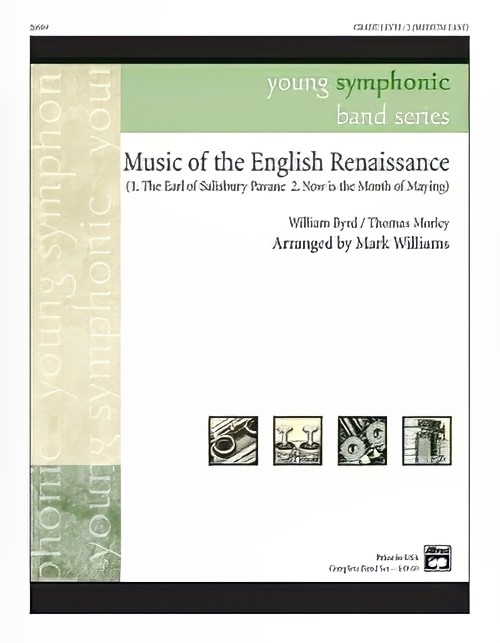 £48.95
£48.95Music of the English Renaissance (Concert Band - Score and Parts) - Byrd & Morley - Williams, Mark
This tasteful arrangement of two classics from the English Renaissance will serve as a great stepping-off point for studying music from different historical periods. The Earl of Salisbury Pavane by William Byrd is a beautiful study in sonority and counterpoint. Now Is the Month of Maying by Thomas Morley is a madrigal written for six voices. A great addition to the young band repertoire. Duration: 3.30
Estimated dispatch 7-14 working days
-
 £50.50
£50.50You're a Grand Old Flag (Concert Band - Score and Parts) - Cohan, George M. - Bullock, Jack
Here is a wonderful patriotic song that is arranged in two different styles. After the introduction, the melody is presented in a slow lyrical style. The middle section is a spirited fanfare, followed by a Grandioso, followed by a big, full ending. Duration: 2.15
Estimated dispatch 7-14 working days
-
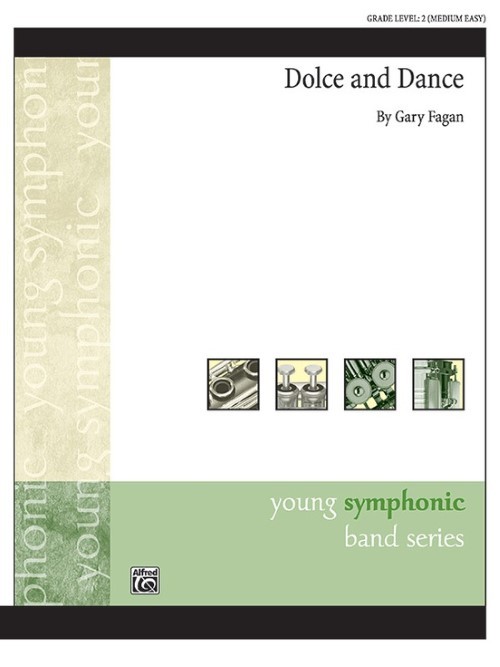 £56.50
£56.50Dolce and Dance (Concert Band - Score and Parts) - Fagan, Gary
Dolce and Dance by Gary Fagan gives your students an opportunity to shine by incorporating two contrasting styles in one piece. The first section allows for legato lines and sensitive phrasing, while the second section calls for a marcato feel to be played in a dance-like fashion. Great for contest! Duration: 4.00
Estimated dispatch 7-14 working days
-
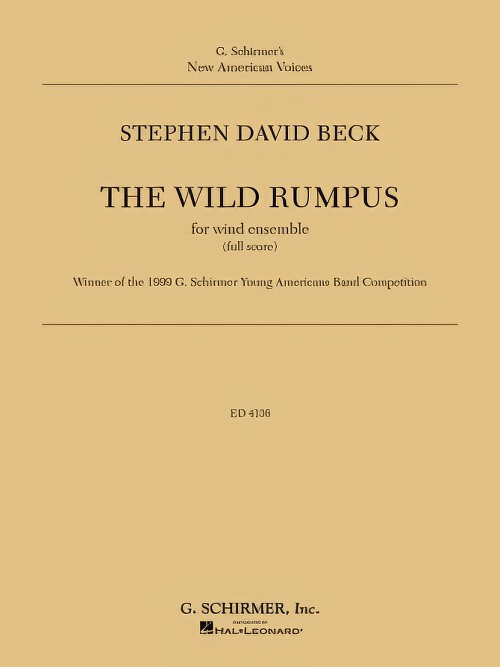 £168.50
£168.50The Wild Rumpus (Concert Band - Score and Parts) - Beck, Stephen David
Winner of the prestigious 1999 Schirmer competition for young composers, this significant work with expanded instrumentation brings Stephen Beck to the forefront of contemporary literature for bands. The Wild Rumpus was inspired by the children's book, "Where The Wild Things Are," by Maurice Sendak. Near the middle of the story, the hero, a young boy named Max, discovers the world of the Wild Things, and is crowned king of the Wild Things. At that point, Max shouts "Let the wild rumpus start!"Composed in two movements:Howling, SwingingMarching
Estimated dispatch 7-14 working days
-
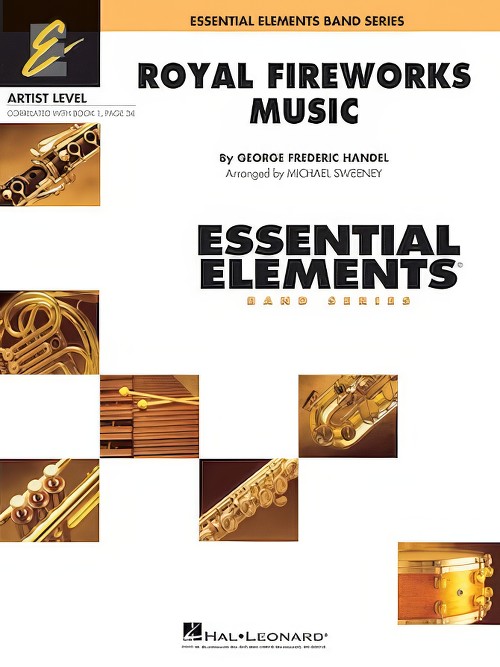 £42.50
£42.50Royal Fireworks Music (Concert Band - Score and Parts) - Handel, George Frideric - Sweeney, Michael
From this Baroque masterpiece by Handel, Mike has selected two of the most familiar themes for this arrangement. The bold and majestic strains of the Overture are followed by the faster and energetic Minuet. The brass and woodwinds are often featuring in answering phrases in this convincing adaptation for beginning groups.
Estimated dispatch 7-14 working days
-
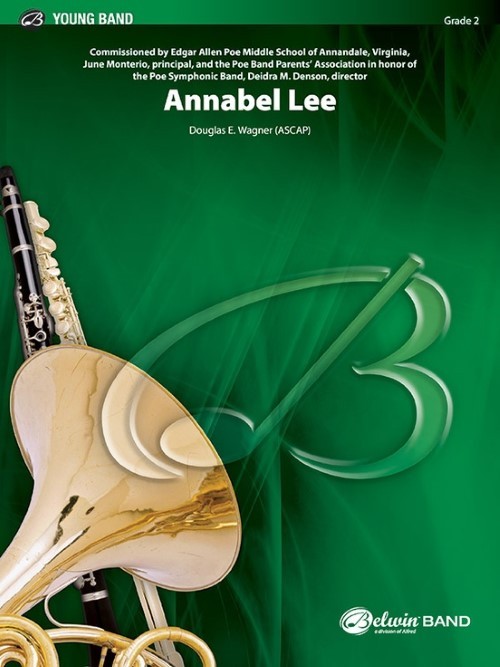 £53.95
£53.95Annabel Lee (Concert Band - Score and Parts) - Wagner, Douglas E.
Based on the exquisitely beautiful poem of the same name, by Edgar Allan Poe, Annabel Lee by composer Douglas Wagner is a charismatic work, with the main thematic material reoccurring as a dialogue between the two lovers in counterpoint in both the first and last section. The middle segment paints a musical picture of a cold, desolate, windswept shoreline . . . a place where this portrait might have been discovered. Wonderfully flowing lines with fascinating harmonic colouration. Duration: 4.30
Estimated dispatch 7-14 working days
-
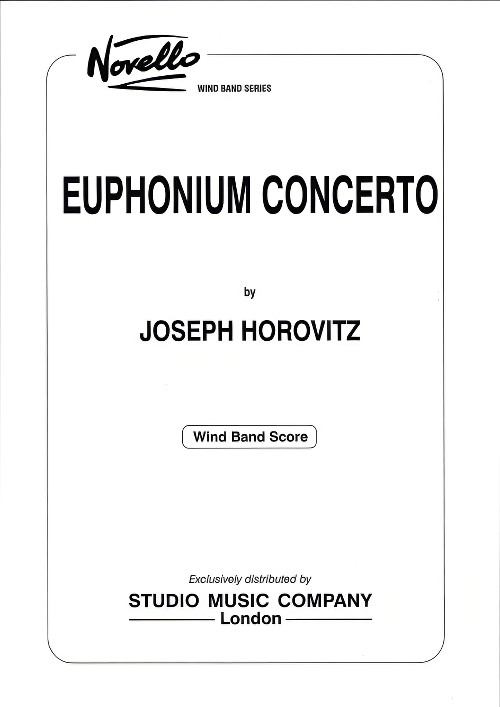 £209.95
£209.95Euphonium Concerto (Euphonium Solo with Concert Band - Score and Parts) - Horovitz, Joseph
The three movement structure reflects a classical outlook concerning concertos. Traditionally, this design favours the listener, first in the head, then the heart and finally in the toes. In the first movement, the soloist combines clear strong phrases with gentle melismatic meandering as well as negotiating many acute-angled leaps which justify themselves by enharmonic changes beneath. The slow movement has a long main melody and contains the only cadenza element in the work: two pastoral passages, homage to the mysteriously beautiful Border Country. The finale opens with a driving, motoric introduction followed by a cheeky rondo theme. Repeated quotations of this are elaborated with increasingly intricate variations until an unaccompanied whole-tone version of the theme brings the work to a fast close.
Estimated dispatch 7-14 working days
-
 £44.95
£44.95Euphonium Concerto (Euphonium Solo with Concert Band - Score only) - Horovitz, Joseph
The three movement structure reflects a classical outlook concerning concertos. Traditionally, this design favours the listener, first in the head, then the heart and finally in the toes. In the first movement, the soloist combines clear strong phrases with gentle melismatic meandering as well as negotiating many acute-angled leaps which justify themselves by enharmonic changes beneath. The slow movement has a long main melody and contains the only cadenza element in the work: two pastoral passages, homage to the mysteriously beautiful Border Country. The finale opens with a driving, motoric introduction followed by a cheeky rondo theme. Repeated quotations of this are elaborated with increasingly intricate variations until an unaccompanied whole-tone version of the theme brings the work to a fast close.
Estimated dispatch 7-14 working days
-
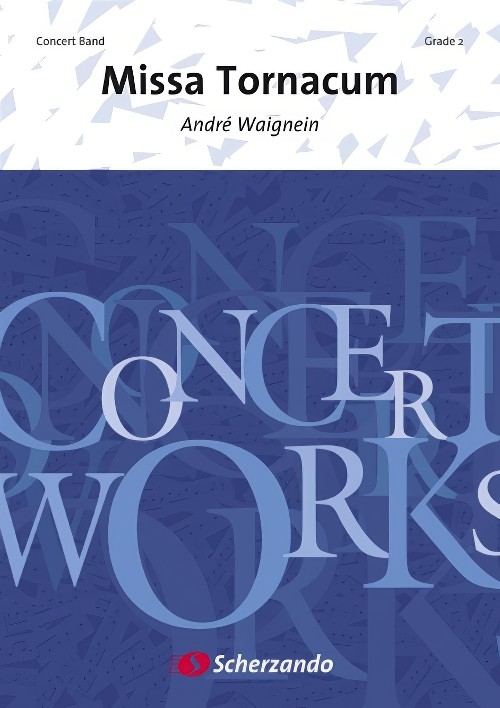 £202.99
£202.99Missa Tornacum (Choir with Concert Band - Score and Parts) - Waignein, Andre
Felicien Doyen, the President of the Tornacum Royal Choir Circle of Tournai (Belgium) and a close friend of the composer commissioned this Mass. Missa Tornacum was originally composed for mixed choir and organ, gave a memorable performance of the piece in the Chartres Cathedral in France.Although it does not include the Credo, the work is composed according to the traditional structure of a Mass in five parts : Kyrie, Gloria, Sanctus, Agnus Dei, and Ite missa est. En the first two parts, a dialogue is created between the choir and the band. It is followed by the Sanctus cycle ("Sanctus" - "Hosanna" - "Benedictus"), which is remarkable for the contrasts between the tone colours characterising each of its three parts. The fourth part, Agnus Dei, takes on a tone of serene intimacy. A free counterpoint draws this section to a close by fading into an almost imperceptible quietness. Ite missa est begins with a series of imitations, which develop into a majestic and cheerful passage marking the end of the Mass. Choir parts are available separately.Duration: 17:00
Estimated dispatch 7-14 working days
-
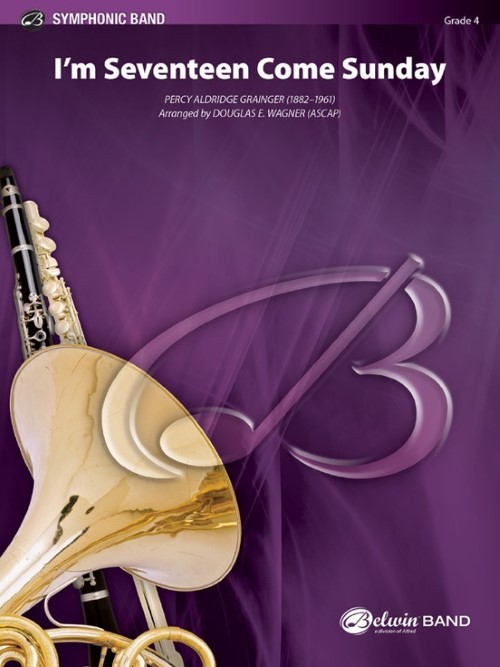 £87.00
£87.00I'm Seventeen Come Sunday (Concert Band - Score and Parts) - Grainger, Percy Aldridge - Wagner, Douglas E.
Australian-born Percy Grainger developed into one of the most sensationally successful concert pianists of the early 1900s. As a composer and arranger, he is perhaps best known for his work with folk music. Number eight in Grainger's British Folk-Music Settings series, "I'm Seventeen Come Sunday" is actually an amalgam of two English folk songs -- the main tune collected by Grainger in 1905, from Lincolnshire, and a variant of a tune collected by Cecil J. Sharp in 1912, from Somerset. Welcome Douglas Wagner's sensitive setting of one of Grainger's best-known works.Duration: 3.00
Estimated dispatch 7-14 working days
